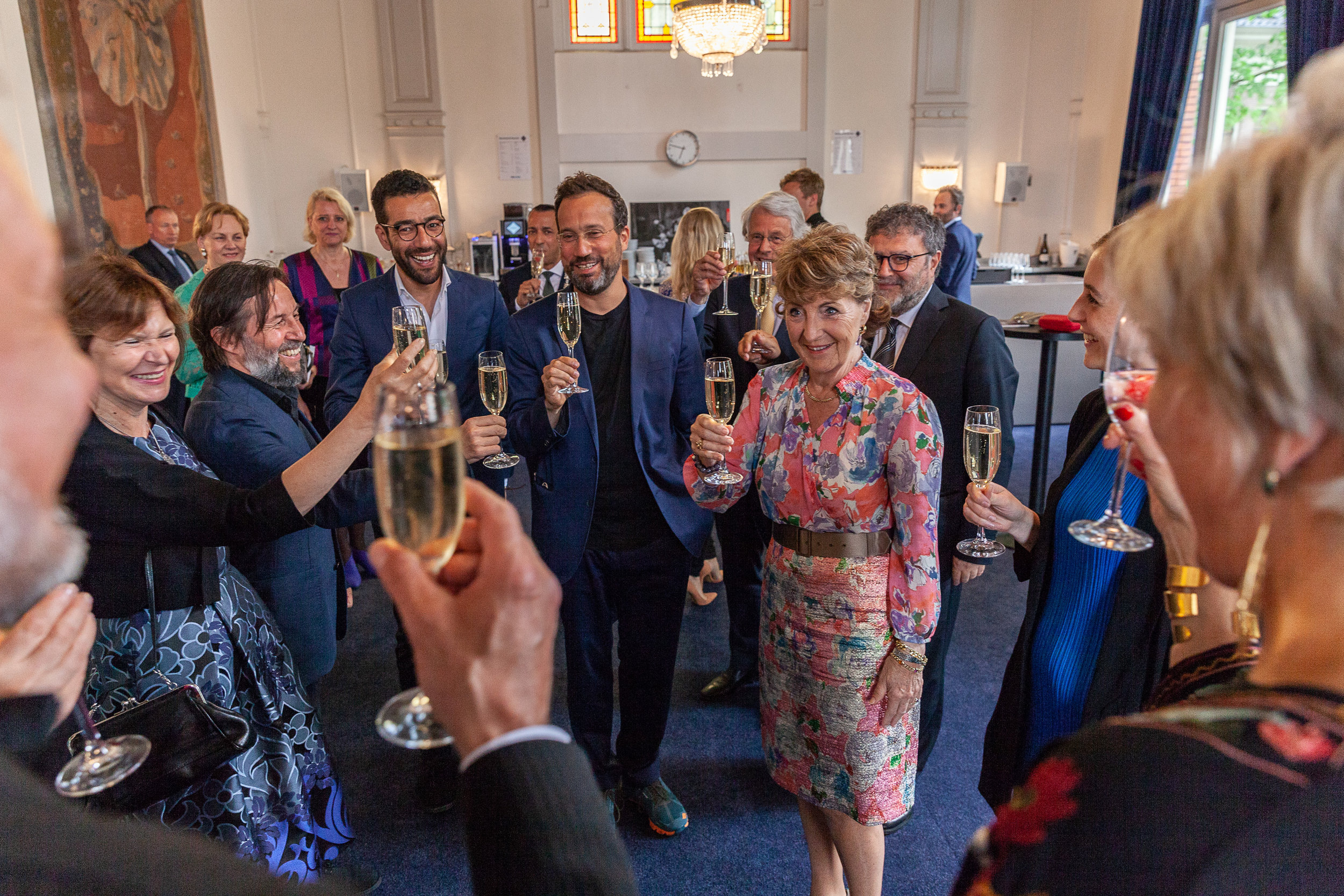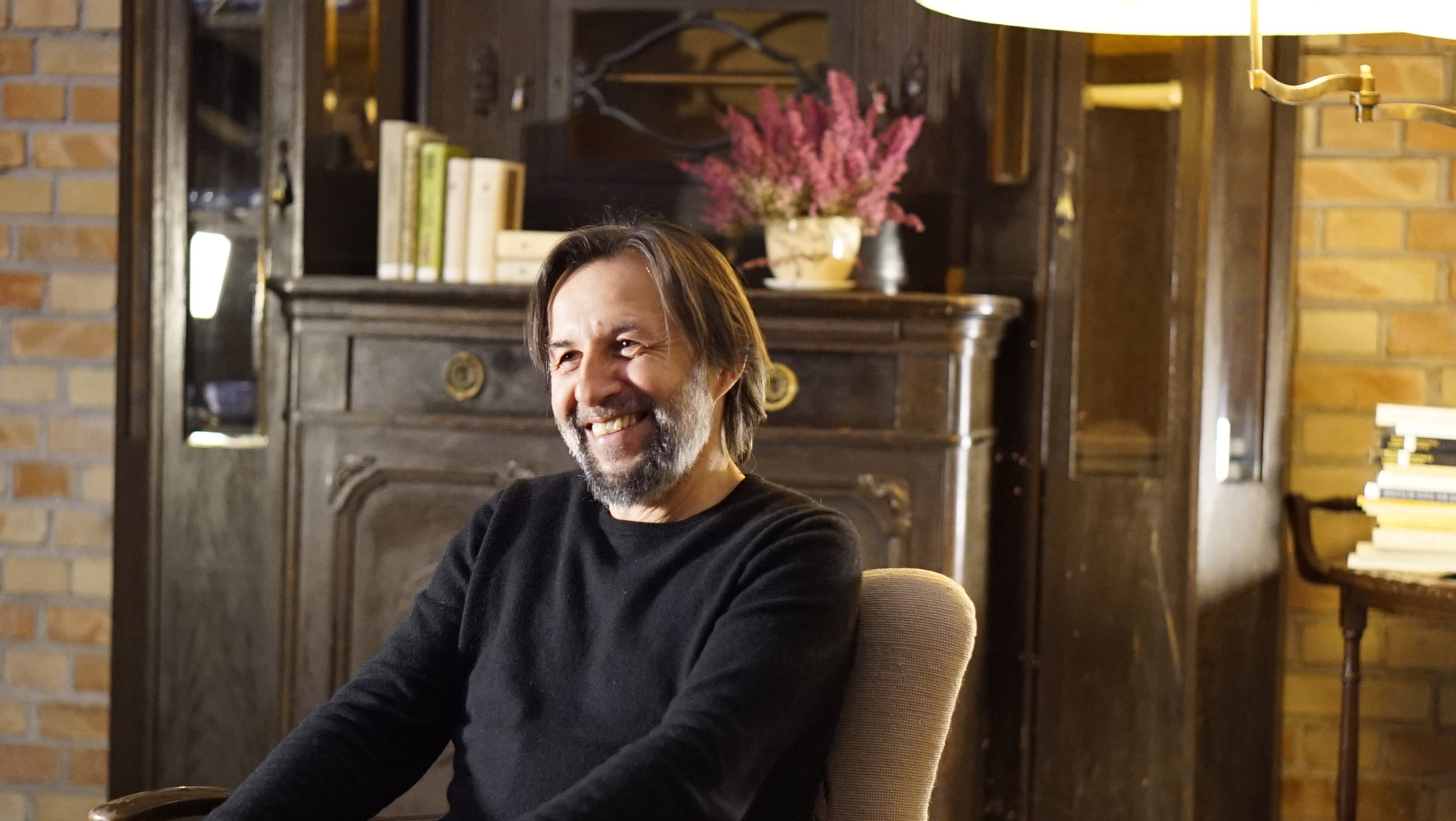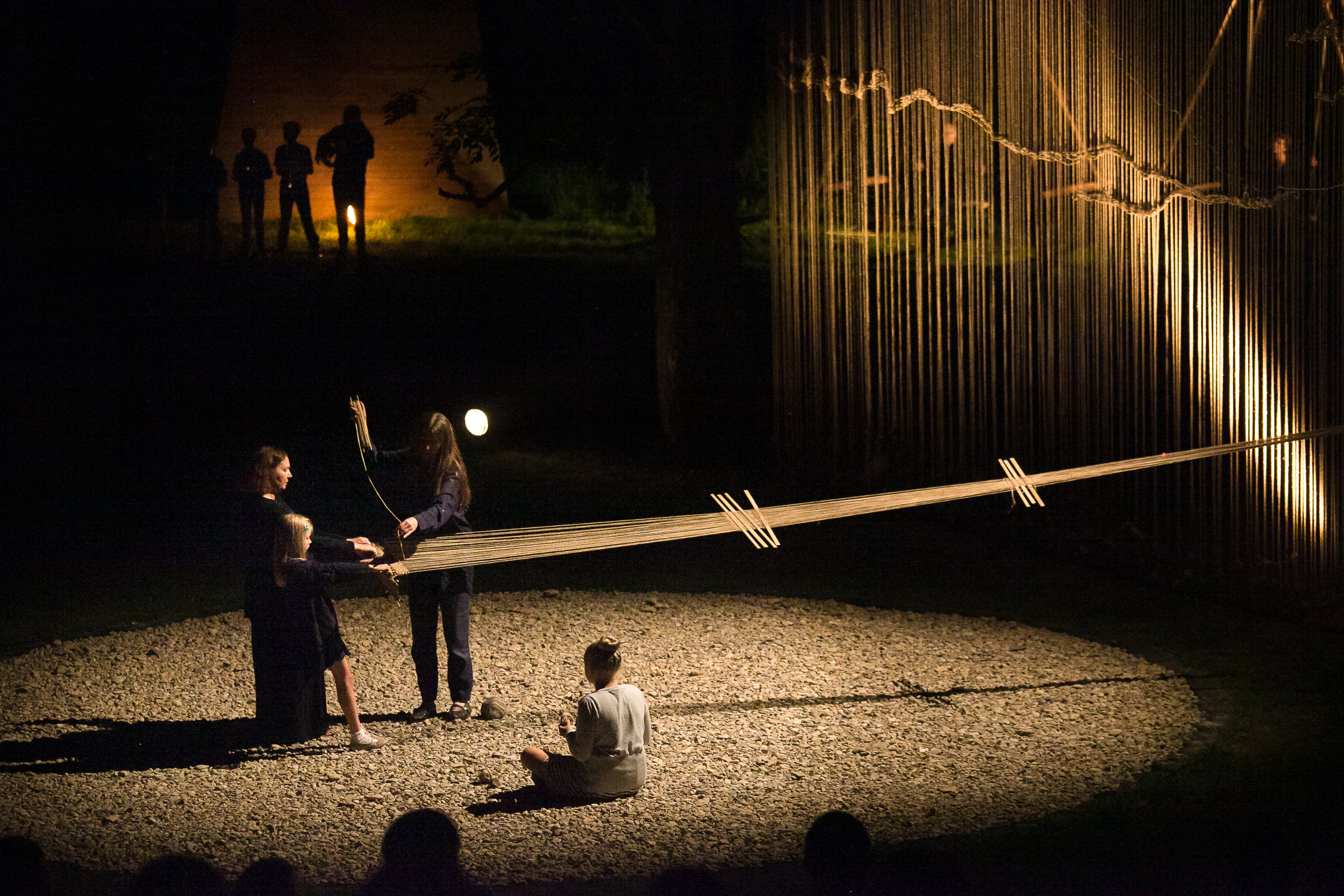In two features, we present you the work of our 2016 ECF Princess Margriet Award for culture laureates: Medialab-Prado, a citizen laboratory for digital culture based in Madrid, Spain (read below), and theatre-makers and community developers Krétakör, based in Budapest, Hungary.
Medialab-Prado: Creating a Community and Learning to Live Together
Editing together to make ourselves visible in Wikipedia. Photo: Medialab Prado CC BY-SA 2.0
Medialab-Prado is a digital platform and physical workspace where people with different skills and knowledge come together to access and build a digital commons. Located in Madrid, Medialab-Prado reaches out across Spain and into the global media sphere. Through workshops, participatory events and modes of collaborative action, Medialab-Prado has been among the front-runners for many projects that have gone on to nourish democratic processes in digital culture in Spain. As a part of the Department of Culture and Sports of the Madrid City Council, Medialab-Prado demonstrates that it is possible to develop new cultural initiatives as permeable, civic-public partnerships that are capable of rethinking public institutions from within.
In a recent interview with El País following the announcement of the 2016 ECF Princess Margriet Award for Culture, Marcos García, director of Medialab-Prado, explained that the Award offers a big opportunity for more people to access the Medialab-Prado and participate to existing projects. He also emphasised that one of the core values of Medialab-Prado is the experimental component it embodies and the many possibilities such an approach brings for audience participation.
American activist, writer and policy strategist, and co-founder of the Commons Strategies Group David Bollier, wrote on his blog about Medialab-Prado a few years ago, when the centre’s activity was threatened to be stopped:
"For people who care about socially engaged, commons-minded tech innovation, there are few institutions in the world as bold and courageous as Medialab Prado, in Madrid. For the past ten years it has been a technology lab, an interdisciplinary forum, a space that welcomes public participation, a hub for citizen activism, and a host of provocative workshops and conferences. And yes, the Medialab Prado has also been deeply engaged with the commons paradigm as an important way of shaping a better, more socially constructive future."
La Serrería Belga (April 2013). Photo Medialab-Prado
MediaLab-Prado is both a physical and a digital platform. It is based in a unique space, La Serrería Belga (The Belgian Sawmill) with a significant architectural history. The building was renovated by architects María Langarita and Víctor Navarro who decided to leave the façade of the old building intact and insert a more flexible structure inside. Anyone can walk in this “laboratory for connecting ideas” as Bernardo Gutiérrez once described in Guerrilla Translation, adding that as an interdisciplinary workspace for creation and innovation “its strength doesn’t reside in its own programming, put together by stewards and specialists. It lies instead in the various working groups, projects and encounters collectively cooked up by the citizen communities who frequent Medialab’s headquarters, or participate in its digital channels.”
Medialab-Prado understands the importance of having both a physical space and a strong online presence to build a dedicated community, and that is where their true strength lies, as Gutiérrez says,
"MediaLab Prado has become such a relevant space for coexistence, innovation and mutual co-creation. […] The key to MediaLab Prado’s success may be held in a definition first proposed by José Luis de Vicente: “it’s a community incubator”. In fact, both words, “community” and “incubator,” have been the trend amongst Silicon Valley circles and community managers alike. It’s also worth noting that, as terms, they are seldom seen together."
Working stations. Photo: Medialab-Prado
In this TEDx-Madrid interview, when asked what makes Medialab-Prado so different, Marcos García highlights the importance of participation: people can make projects of their own or join in existing projects with others. It allows collaboration between many different people on very diverse projects, from data visualizations to projects including participants from different generations learning how to programme together. García also explains they mainly use the internet in two ways: to publish open calls for projects, which are followed up with a call for collaboration; and to share resources and documentation. As for the space itself, García mentions the importance of its flexibility to be able to make people feel welcome to participate. In addition, there are cultural mediators in the space to offer information and to listen to people’s needs.
When asked about future goals, García mentions the necessity to augment the diversity of participants, admitting that they still have to make efforts to get a real representation of society, and suggests to go into different neighbourhoods to bring media labs in there. He also adds that another idea would be that government bodies – other than culture, could use Medialab-Prado as an experimentation space.
You can watch the full interview (in Spanish) below:
These elements brought together, the digital and the physical space, ensure that Medialab-Prado is about experimentation and openness. However, the interest isn’t on open source projects per se, as García explained to Virtueel Platform back in 2011, but more in the implications it has to construct communities and develop social innovation, through cooperation and collaboration between the users, and by sharing knowledge in projects of all dimensions.
Medialab-Prado truly is one excellent example of how you can include people into your work by promoting and enabling this open culture, and creating a real space for learning to live together as communities.
Medialab-Prado (Spain) is one of the 2016 Princess Margriet Award for Culture laureates, together with Kretakör (Hungary), both chosen for their exceptional bodies of artistic and cultural work in developing critical spaces of social participation and political experimentation through culture.
By honouring these two laureates, ECF is highlighting the importance of culture in creating a more open and inclusive Europe. This is a Europe that ECF believes in and supports through its entire body of work, from its grant schemes and cultural managers’ exchange programme to its Connected Action for the Commons programme, which connects cultural change-makers at grassroots level and encourages new models of participation and democracy.































